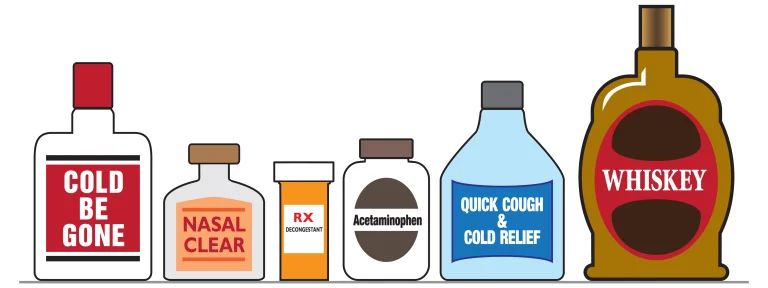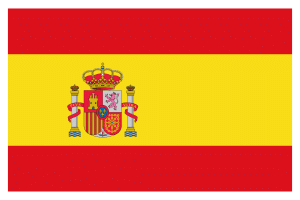UPDATE 23rd of October 2020: COVID-19 Test Removed From Entry Requirements. This October the 22nd, authorities announced that they are going to eliminate the negative…
UPDATE 23rd of October 2020: COVID-19 Test Removed From Entry Requirements.
This October the 22nd, authorities announced that they are going to eliminate the negative coronavirus test requirement for foreign tourists. The Minister of Tourism declared that touristic traffic has not been a source of COVID-19 contagion. Starting on October 26, arriving visitors will no longer need to show proof of a negative PCR coronavirus test result. Also, nationals and residents will not be required to quarantine. Travelers who want to enter the country will still need to purchase travel medical insurance and complete the Health Pass form. The insurance must be either a policy from INS, Sagicor, or a foreign policy that covers COVID-19 medical expenses and extended lodging. We are waiting for the official decree to be issued since this is a developing matter. We will provide additional information once we have access to it. Feel free to keep checking our blog for more information
UPDATE 15th of October 2020: Starting the 1st of November Costa Rica will allow travelers from all 50 U.S. states, and all of Canada, to to enter the country without quarantine.
Costa Rica had been taking a layered approach, state-by-state, allowing only citizens from those states which have low COVID-19 transmission rates.
Starting Sept. 1, Costa Rica began welcoming residents of Connecticut, Maine, New York, New Jersey, New Hampshire, and Vermont. Two weeks later, it added five other states along with Washington D.C. to the tourism list. Then, on Oct. 1, it began welcoming residents from California, Ohio, Mexico, and Jamaica.
Beginning on Oct. 15, residents from Florida, Texas and Georgia are permitted to visit the country, followed by all 50 states on Nov. 1.
There will still be requirements for incoming travelers, even with the news. Everybody will still have to complete the digital Health Pass and show proof of a negative COVID-19 result taken within 72 hours prior to their flight to Costa Rica. (see further information below)
All guests will also have to have travel insurance, which can be bought from any international or Costa Rica travel insurance provider. Guests will no longer require proof of residency from the U.S. state they live in as all U.S. states are now eligible.
September 10, 2020 – As of Aug. 1, select international travelers are authorized to enter Costa Rica’s three international airports: Juan Santamaría International Airport, Daniel Oduber Quirós Airport, and Tobías Bolaños Airport.
The list of authorized regions and countries is being revised periodically.
This is the list currently in effect:
- THE EUROPEAN UNION, SCHENGEN ZONE, AND THE UNITED KINGDOM: for flights from the European Union, the Schengen Zone, and the United Kingdom; for citizens and residents of the European Union, the Schengen Zone, and the United Kingdom.
- CANADA:for flights from Canada; for citizens and residents of Canada and for citizens and residents of the European Union, the Schengen Zone, and the United Kingdom in transit.
- SOUTH AMERICA:for flights from Uruguay; for citizens and residents of Uruguay.
- ASIA:for flights from Japan, South Korea, Thailand, Singapore, and the People’s Republic of China; for citizens and residents of Japan, South Korea, Thailand, Singapore, and the People’s Republic of China.
- OCEANIA:for flights from Australia and New Zealand; for citizens and residents of Australia and New Zealand.
- As of Sept. 1, 2020: UNITED STATES OF AMERICA (Residents of nine states): Connecticut, Maine, Maryland, New Hampshire, New Jersey, New York, Vermont, Virginia, and Washington, D.C.
- As of Sept. 15, 2020: UNITED STATES OF AMERICA (Residents of ten states): Arizona, Colorado, Massachusetts, Michigan, New Mexico, Oregon, Pennsylvania, Rhode Island, Washington and Wyoming.
- As of Oct. 1, 2020: UNITED STATES OF AMERICA (Residents of one state): California (if the epidemiological scenario permits it)
Requirements to Enter Costa Rica:
- Fill out the electronic epidemiological HEALTH PASS form, available at https://salud.go.cr.
- RT-PCR diagnostic test with a negative result; the sample must have been taken within 72 hours of travel to Costa Rica.
- Passengers coming from the U.S. must show through their driver’s license or state identification (State ID) that they live in one of the 20 authorized states. This requirement excludes children travelling with their family.
- Traveler’s Medical Insurance– international or purchased in Costa Rica through the National Insurance Institute (INS – Instituto Nacional de Seguros) https://www.grupoins.com/seguroparaviajeros, or Sagicor https://www.sagicor.cr/seguro_para_turistas/.
For international insurance policies, tourists must request a certification from their insurance company, issued in English or Spanish, verifying at least the following three conditions:
- Effectiveness of the policy during the visit to Costa Rica.
- Guaranteed coverage of medical expenses in the event of becoming ill with the pandemic COVID-19 virus while in Costa Rica, for at least USD $50,000 (fifty thousand United States Dollars).
- Includes minimum coverage of USD $2,000 for lodging expenses issued as a result of the pandemic.
Passengers who fail to comply with these travel requirements may not enter the country.
Upon landing in Costa Rican territory, travelers must wear face protection and comply with the strict protocols of the air terminal with regard to physical distancing, disinfection of carpets, and taking temperature readings, and must follow any other sanitary instructions.
Tourists from authorized states may enter the country even if their route includes a stop at a destination that is not authorized, as long as they do not leave the transit airport.
To view a video with important U.S. entry information, click here: https://www.youtube.com/watch?v=MAc-cbzOhxM.
Opening to Private Flights
As of Sept. 1, private flights from the United States will also be allowed to enter Costa Rica, given that their size and nature means they present a much lower epidemiological risk.
The same requirements as set forth above shall be applicable to persons on private flights. In the event that they come from a state or country that is not authorized, they must receive the approval of the Ministry of Health and the General Directorate of Migration and Foreigners (Dirección General de Migración y Extranjería). Interested parties should submit a request with the following items:
- Full names of the passengers.
- Nationalities and ages.
- Legible copy of the biographical page of the passport of each one of the passengers.
- Date of arrival, arrival airport, and flight origin.
- Strategic reason for admission (investment review, property in Costa Rica, humanitarian reasons, etc.).
Gradual Maritime Opening
Passengers and crew members of yachts and sailboats must meet the same entry requirements as those issued to passengers entering by air on August 1.
Those who entered the country by sea from the list of permitted countries and who have not made a stopover elsewhere, should not be subjected to isolation if they have been sailing for more than 14 days.
If the passengers do not bring with them the negative RT-PCR test taken 72 hours prior to the trip to Costa Rica, or they set sail in an unauthorized city or country, they will receive a sanitary isolation order for 14 days from, from which will be deducted the number of days on the high seas, counting from the last port departure date recorded in the yacht or sailboat’s log.
In addition to the aforementioned requirements, tourists arriving from yachts or sailboats must hand over to the immigration authorities the “International Ship Sailing” document and dock in authorized marinas.
In case of doubts with the medical insurance, the passengers and crew of yachts or sailboats can write to the email seguros.marinas@ict.go.cr.
Where can I find updated official information on the situation of COVID-19 in Costa Rica?
You can stay informed at the following links:
Ministry of Health:
Costa Rica Tourism Board (ICT):
https://www.ict.go.cr/en/institutional-services/coronavirus-support-material-tourism-sector.html
Presidency of the Republic:
https://www.presidencia.go.cr/noticias/
Migration Office:
Juan Santamaría International Airport:
Daniel Oduber International Airport (Liberia International Airport):








